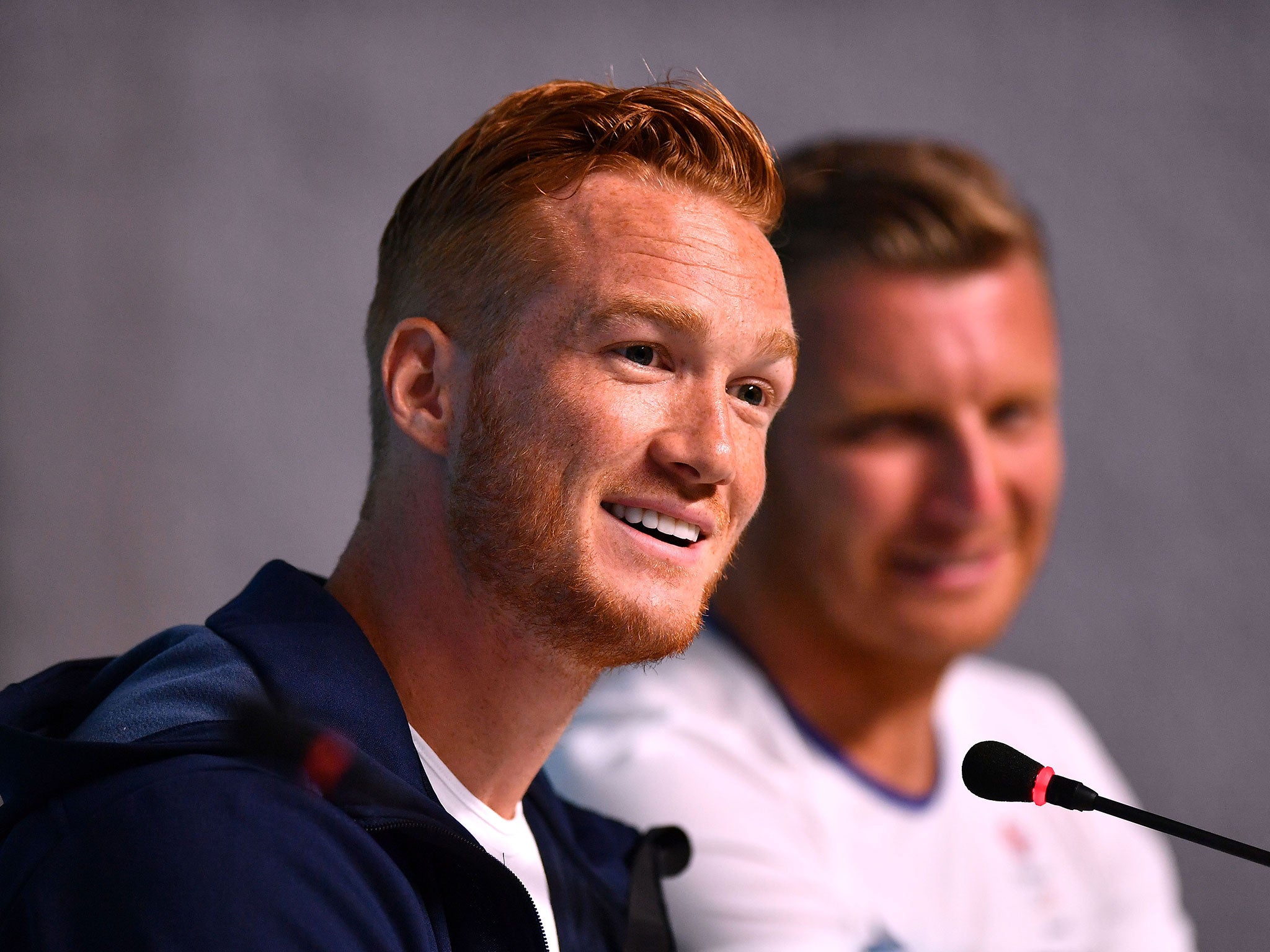Rio 2016: Greg Rutherford sets sights on another Super Saturday
The World, European, Olympic and Commonwealth champion hopes for a repeat of that night in London four years ago

Your support helps us to tell the story
From reproductive rights to climate change to Big Tech, The Independent is on the ground when the story is developing. Whether it's investigating the financials of Elon Musk's pro-Trump PAC or producing our latest documentary, 'The A Word', which shines a light on the American women fighting for reproductive rights, we know how important it is to parse out the facts from the messaging.
At such a critical moment in US history, we need reporters on the ground. Your donation allows us to keep sending journalists to speak to both sides of the story.
The Independent is trusted by Americans across the entire political spectrum. And unlike many other quality news outlets, we choose not to lock Americans out of our reporting and analysis with paywalls. We believe quality journalism should be available to everyone, paid for by those who can afford it.
Your support makes all the difference.Greg Rutherford might be a fixed and recognisable point on our sporting landscape now but he was nowhere near it on Super Saturday, the moment from the London Olympics which will be enshrined across the collective memory of all who witnessed it.
The long jumper was the forgotten man back then - sandwiched in between the extraordinary efforts of Jessica Ennis and Mo Farah, to such an extent that one of the water carriers that day, the young 200m Dina Asher-Smith who is one of his team mates here in Rio, was disappointed to have missed Usain Bolt’s run. She overlooked Rutherford’s name on the start time sheet entirely.
Rutherford, now World, European, Olympic and Commonwealth champion in his sport, could reflect after arriving here from the Team GB holdng camp in Belo Horizonte, that he can live with being the invisible man.
“It was the greatest moment of my career and I have no regrets about how it played out because if I hadn't been sandwiched between the other two, then it wouldn't have been Super Saturday,” he said. “To have achieved a gold medal alongside two of Britain's greatest ever athletes was a really big deal for me.”
The difference four years on is that Britain is aware of such a concept as a Super Saturday and there is a latent expectation, rather than it being something which arrives from nowhere. But Rutherford’s take on the whole phenomenon is that the British must go out to repeat it, draw o it; do it all over again.
“Four years on, we are all in a fantastic position and hoping to replicate that night,” he said. “I don't see that much of the other two as Jess is in Sheffield, Mo is based in Oregon and I am in Phoenix most of the time. But Mo and I are in the same apartment in Rio, so we have been hanging out here and I was having treatment at the same time as Jess just earlier. When we do get together, it is very friendly between us.”
The competition for him is arguably tougher than London. The long jump field looks more open; more akin to what Rutherford was up against in Beijing eight years ago, when he finished 10th. The threat from the two Americans, Jarion Lawson and Jeff Henderson, will be tough. The Australian Fabrice Lapierre and Michel Torneus are also strong.
But the difficult conditions here, with the weather having taken a turn for the worse on Wednesday, may not be a calamity. “I’ve been coined as the world’s best ever bad conditions jumper,” he said.
“I’m driven by competition. The chance of winning and getting more medals motivates me. Nothing motivates me like standing on top of a podium. I live for those moments, I’ve been very lucky to have five in my aerer. Ive just turned 30 this year. It goes very quickly. The last ten years have gone fast and I want to enjoy the rest while I can.”
The discussion on Wednesday focussed on the blend of experience and youth, with Asher-Smith’s youthful exuberance about some of her experiences in a first Olympics such a contrast to the older heads sitting with her, Jo Pavey and Rutherford.
Asher-Smith, who was fifth in the world championships last year but won the Europeans this year, is a genuine medal prospect and certainly did not look like the weight of responsibility was heavy.
“There was a moment [the other day] when we all of us – swimmers, shooters too– gathered around the TV and were watching the Olympics,” she said. “It’s strange to think that having the rings on our chest brought us together. That bond we share is amazing.”
Rutherford’s coach Dan Pfaff has overcome illness to be here with him – a huge boost. The challenges facing him do include the ear condition cochlear lydrops, which he now knows will affect him for the rest of his life
“Fingers crossed I’m OK,” he said. “Severe air pressure changes or loud noises can cause it, which is an incredible thing to be thinking about going into the Olympic stadium.” He will put up with the consequences if Britain can deliver a repeat of August 5, 2012.
Join our commenting forum
Join thought-provoking conversations, follow other Independent readers and see their replies
Comments